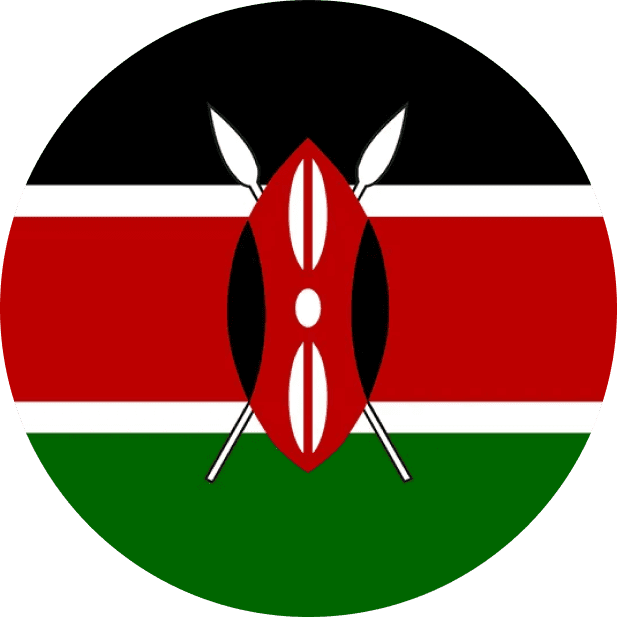About Hugh Massie
![Linking behaviors to core values- Hugh Massie [Interview]](https://assets-global.website-files.com/62d84b3d3ba446b2ec041a19/62d84b3d3ba446dfa1042481_Hugh-Massie-1024x683.jpeg)
Hugh Massie is the Chairman and CEO of DNA Behavior. He is a well renowned keynote speaker and an author of "Leadership Behavior DNA, Discovering Your Natural Talents and Managing Differences".
His specialities include behavioral insights, design of innovative behavioral management solutions, behavioral finance and risk profiling, business mentoring, communication and human capital management. We are extremely happy to have someone of his stature on our interview series today.
Vanessa Rose
![Linking behaviors to core values- Hugh Massie [Interview]](https://assets-global.website-files.com/62d84b3d3ba446b2ec041a19/62d84b3d3ba4466f08042606_Screenshot%202020-08-15%20at%207.41.33%20PM.png)
We have the pleasure of welcoming Huge Massie today to our interview series. I am Vanessa Rose from the peopleHum team. Let’s begin with just a quick introduction of peopleHum. peopleHum is an end-to-end, one-view, integrated human capital management automation platform, the winner of the 2019 global Codie Award for HCM that is specifically built for crafted employee experiences and the future of work.
We run the peopleHum blog and video channel which receives upwards of 200,000 visitors a year and publish around 2 interviews with well-known names globally, every month.
Vanessa
Welcome, Hugh. We’re thrilled to have you.
Hugh
Thank you, Vanessa. It's great to be with you.
Vanessa
The first question I have for you Hugh was, can you tell us a little bit about your journey that brought you to DNA Behavior?
Hugh
So I’ve had a very different journey. Many would expect someone who's running a behavioral company to be a psychologist, and I'm not. I'm actually a CPA or for people from English based countries, a chartered accountant by original training. And I was in the management of one of the large chartered accounting firms for 10 years in Sydney, Australia in Southeast Asia. And then I left in the mid-nineties and set up a wealth management business.
And it was there in dealing with people's money, I started to see that there were different behaviors when people were under pressure and that got me to realize that when I was helping people with their money and with their lives, and sometimes, I was their mentor as well. I was helping them with their career. There was more than just the money issues going on. It was actually behavior, and I could see that people, Vanessa, behave differently under pressure.
And if I wanted to know what that was and so I hired an industrial psychologist to come and work in our wealth management business, and she confirmed my theories about the fact that people have this natural, instinctive behavior that they're born with, that's shaped by the time they're three years old, that's what I need to know.
If I'm going to advise people whether it's with their money in their life, I need to know that. And so that then brought me to America, to Atlanta, Georgia, where I now live. This happened 19 years ago when I first came across the ideas and my industrial psychologist in Australia, Carol, popped in to introduce me to a man here in Atlanta called Lee Ellis. And he helped validate the theories that I had. He was very experienced in this. He did a lot of work with the U. S. Air Force and in other fields. And so we formed a partnership and that really took me on the journey and step by step I learned it.
And I started to facilitate boards of companies, large consulting groups, financial planning, wealth management firms, all over the globe and we build a system and I bankrolled it, came up with the ideas, bankrolled it, got it all validated and 19 years later, this is where I sit, running this business, never been happier in my life. And also through that journey learned a lot about leadership itself and what's important to be a leader. And I'm involved in the leadership of other organizations other than my own business, and that gives me experiences as well.
So that's really my if that gives you a good idea to the pathway, right? But I think it's also important for the listeners to understand, in a way I went through a shift. If you want to call it that, from being a chartered accountant to a behavioral specialist or behavioral insights pioneer, as I would term myself now.
But it was out of my deeper purpose, wanting to help people become self-empowered, and that was the crux of it and when I realized what helping people become self-empowered was, is about understanding themselves, who they are at the core, what their strengths and talents are, what their struggles are, and being able to use that to take responsibility, to grow their own lives, that was really the foundation and the gift.
Building the system in a way has been something that sits on top of that. That means I can do it on a scalable basis to help many people globally become self-empowered.
Vanessa
That is so interesting. Behavior is really a core of how people operate. To be able to understand that, it’s really interesting.
Hugh
I believe behavior is at the center of everything. And it's wrapped up in the decisions we make. The decisions we make reflect the core of who we are. And it's something that's not, it's still not addressed enough in leadership. I sit on boards of groups. I facilitate groups, and I think not enough people know where the others in the room are coming from and what their perspectives are.
And that's what leads to a lot of lack of trust, conflicts, and problems. We don't know in the workforce enough about who each other are, on a real-time basis. And if you can understand who they are, then you can accept them for who they are and you can have greater respect. Because when respect is lost, that’s a big problem.
"When respect is lost, that’s a big problem."
If the respect is lost by the leader for a teammate, that's a problem. If a teammate doesn't respect his or her leader, that is a problem.
Vanessa
That is so true. We don't really understand each other anymore. We’re just working together and we don’t know what’s going on with the other person. We don’t communicate enough.
Hugh
And in this digital world, we’re in right now, which has been growing and I'm sure you're doing a lot of work in that area. But more of us are working from home. You know, I've got my employees from my business in 11 different countries, you know. But we've been working more virtually for a while though we have offices, we've been working as a virtual team for a while. But you know, one of the things is that we've learned over the last 5-6 years is how to engage people in that environment, and now many have gotta learn it because this is going to be the new world of more people working at home.
And it's a huge challenge for leaders and you've got to understand, as a leader the behavior of every person on your team. Because some are gonna need more engagement and connection in this environment, not less. But the environment means we can't see each other each day and feel each other. That’s it.
Vanessa
What exactly is behaviorally smart leadership? And do you believe in the concept of born leaders?
Hugh
So I'll answer them separately Vanessa although they are somewhat wrapped up together. In terms of behaviorally smart leadership, to me, that is about understanding the human differences. For a leader to have awareness and knowledge to understand how to manage him or herself and the different people on the team. Because it's the differences that get people into trouble, it is the cause of the conflicts, unused talent means lack of productivity. So a behaviourally smart leader knows how to manage differences, but you know there are several pillars to this.
First is the behaviourally smart leader will be able to capitalize on the strengths of every person in the team including their own and be able to manage the struggles. And so that's important, including their own struggles. And the struggles are a flip side of the strengths in a way they think of it as the strength overused.
If your strength is communication and engaging people in a communicated setting, the struggle is you can talk too much and disengage or annoy people from doing that. You could be very well organized, but maybe, you know there's a time to be not as well organized and be more intuitive and spontaneous. So the strength overplayed becomes a struggle. So you've got to understand that tension that exists all the time.
"A strength overplayed becomes a struggle."
The second is what I call the platinum rule of being able to adapt your communication and style to each person. Now, if you and I were working together, we are different people, just aside from the cultural difference, I would need to know what your style is Vanessa, to be able to reach into you and adapt myself to engage you and communicate on your terms.
And it might be, Hugh is a very naturally goal-driven, direct person, to the point. But that's not what you might need at the moment. I might need to be able to listen more, be more empathetic, connect to your feelings. Or I've got to realize that somebody on the team is an extreme innovator and how do I manage that out and work with that but communication is very important and adapting to how the other person wants to be communicated with and treated is important.
The third level is really about emotional intelligence, which is building on the first two, and that starts off with a heightened awareness of yourself and then the ability to manage and relate to others. And so having a heightened level of emotional intelligence is absolutely crucial if you're going to be a behaviourally smartly leader and that's the part that needs some development work. We’re all born with a style, but we've got to do some learning to adapt to others, be more socialized.
In terms of is a leader born or made? I think the way I would address that question and put it back to people to consider is, every person has the traits inside them to be a great leader regardless of their style. But it just might be that they have to do some hard work to learn what those traits are to deploy them in leadership.
"When uncertainity is at its greatest, that's also the greatest opportunity."
Now, I would say, being personal, when I was younger, I didn't perceive myself as a leader. I certainly was not made a leader at school or you know early on. But once I got into the working workforce environment and my confidence grew, I got into leadership positions pretty early on, and so that grew me as the leader.
Sometimes I was reluctant, but the more I've learned about myself, then I've become an entrepreneur, I'm leading a business, I’m now on the board of some global organizations and bigger businesses. With greater confidence and awareness of myself, I've allowed the innate leadership talent inside me to flourish and I've learned the environments that I can lead well in and there are other environments I’m not suited to.
So I also do believe that each person does have those traits inside them. Are they prepared to learn them and maybe do the work to become a leader? Now some people, just naturally fall into it, and the world just opens up a little bit. Others have to do a bit of work at it. And for others, it's situational, we're not all equipped to be the leader of every type of business. There are some businesses and organizations or times in the evolution of a business where we might be better equipped.
So, I do believe at the foundation, you're born with it. Those traits that I'm talking about, you are born with it. You're then put on this earth in a way to go and discover what they are and learn how to work with it. That's where the learning comes in is to find out what they are and then know how to adapt to them, which is again, being behaviourally smart. But the setting that you're in to become a leader and then after that, a lot of it is about is confidence.
We do a lot of working coaching leaders in our business. And I believe, if you put character on the side, on one side character and ability to make wise decisions which are foundational, if you haven’t got that, you haven't got anything. But after that, it's about confidence.
"If you haven't got character and the ability to make wise decisions, you haven't got anything."
And that's why it's important to nurture confidence in people. Ensure yourself that you don't lose your own confidence, when that is starting to wane, you've got coaching support, mentoring. Now I’m on a member of the Entrepreneurs Organization, which is a global group, really for entrepreneurial leads. But in there we are coaching each other, helping each other rise up, being a sounding board, and a lot of that at the end of the day is to keep confidence when you distill it down. And that's what every leader you know has to do. But you have to do it yourself. But you also got to do it for your team. Your team has got to be confident as well. If they’re going to grow.
Vanessa
That was so insightful. So you’re saying that no one is actually born a leader, but are born with the traits and it's their job to actually identify it and work on it.
Hugh
Yeah. You're born with the traits and you can use them to become the leader.
Vanessa
So moving on to the next question.
With respect to your behavioral insight, how would you advise new entrepreneurs to succeed?
Hugh
Well, it's a wonderful question. And we did Vanessa in August 2007, we did a research study of 500 successful entrepreneurs, and I have built a business at least of a $1,000,000 and going up past 10. A segment of them had pretty big businesses. The number one insight for all of them was resilience.
And so, to be a successful entrepreneur, you need to be resilient and, you know, resilience means lots of different things. People have written books about it and sort of described it as grit. There's an element of mental toughness. But I would also say that there is, a part of that is also being emotionally strong and balanced because, at the end of the day, the resilient person is able to take the knockdown that's gonna come as an entrepreneur.
You're gonna get plenty of them and rise back up again. You know, if something happens, you’ve gotta dust yourself off, you know what I call stop yourself before you wreck yourself, check yourself a little bit and move on and accept the situation and that you're gonna learn from it.
In my 25 or 24 years of being an entrepreneur, I've had all sorts of situations that in some ways are inconceivable. And some of them have been quite threatening. But you've got to be able to see what the silver lining is in that and how you can grow out of that experience even if it's not fun.
And I think that's the first thing for an entrepreneur, and you've got to realize going into becoming an entrepreneur, these things are gonna happen. And you know, not to get bitter about it. It's just a fact of life. And I believe how you handle adversity will determine your success at the end of the day.
"How you handle adversity will determine your success at the end of the day."
The second trait actually is risk-taking. So you have got to be able to handle risk and have the tolerance for what happens if something doesn't work out. Because as you build the business from zero to $1,000,000 to $10 million and upwards, there will always be some level of betting the farm with the business, you're always going to have to take risks, there’s gonna be an inflection point. The COVID-19 crisis right now is gonna put a lot of businesses at a point of taking some risks somewhere.
So that leads me into the third one which is innovation. You definitely have got to be prepared to innovate and back innovation. And that's something that's very important in today’s world, business models change, let's say every 3 to 5 years. So the world changes with technology. There's a lot of things that change very fast and at an unprecedented pace. You know whereas 40 or 50 years ago, things might have taken 10 or 15 years for there to be a fundamental change. You could sort of see it coming.
Today it's bang, and, you know, the COVID-19 crisis was really for a lot of us in a matter of days. You're out there, CEO, founder of the business, you've got to take that, you've gotta deal with that, you got to deal with your people, you've got to stay balanced. But you've also got a look at, there is an opportunity here. You know, there will be some businesses that may be permanently damaged, but there are opportunities, so pivot there.
So you've gotta be thinking innovatively. You've got to be adaptable yourself. You gotta have some people like that on your team. Yeah, and then after that comes, what we would call having a growth mindset. I think you've always got to be prepared to be growing and keep on growing so that's an important one. In our behavioral traits, that's being a pioneer. That's really the goal-setting type person. And you've got to be pretty persistent, competitive, want to work hard.
And then the final one is you gotta have charisma and that's really coming from being prepared to project yourself out there and put yourself out there and work. And well, now, not all of us who are successful entrepreneurs have all five of those. But I would say the first one, the resilience is absolutely important.
I have seen some entrepreneurs succeed just straight out on being innovated, and that's their primary trait and they have done it from that. Others it's from hard work. Others it's been charismatic and selling an idea, you know I think a little bit, it depends on the business, the settings. If you can have all five, that's great, and the bigger the business gets, it's more and more important that all those five traits are there.
Vanessa
Yeah. Resilience really does matter in times of adversity.
So how do you think your new age leaders can, you know adapt to it right now? Especially with the remote working?
Hugh
Yeah, so I think, in the current setting, for leaders when there's pressure, particularly for some leaders that are more introverted, it's easy to withdraw and be disengaged and withdraw from the situation in a way, be a little bit disengaged from your team and work alone, that part's easy for an introverted person.
In a way, this COVID-19 crisis to some degree has been an introvert’s paradise. And I've made that joke to people because I'm very introverted and I'm quite comfortable working at home.
I've got a whole floor of my house set up as an office and all the facilities, even though we have an office. This is easy for me, all the technology is there. But the part that's important for me is to understand in these difficult times when you've got all of your employees at home as well and if they're extroverted, they need an even higher level of engagement. And there needs to be even more communication. You know, we talk about as leaders, communicate, and over-communicate.
Well, we can put the over-communicate multiples up. It needs to be a lot more of it. Now, I'm lucky in my team, I've got someone who works with me, really as the president of the company on a day to day basis, Leon and he does a lot of that. He would reach out to every person on the team, would get on a personal phone call or an interaction several times a week.
So, we’re there the whole time. The meeting cadence is not necessarily long meetings, but the meeting cadence is set up for that. We know what everybody's doing, and we understand them, what's driving them so that they can still get the love if you want to call it that, remotely to get the help.
That's what's important because there are others as well that like to do their work collaboratively, and you've got to provide that environment online. Luckily, we've got Zoom, which makes it easier. And there are other tools as well. Like Microsoft teams and Samepage and what not to use, but this is what's important to building that collaboration.
I know that you would be working on this as a company as well, you know, is how do you keep the whole workforce engaged. And, but the leaders have gotta step outside of themselves to do that.
Vanessa
So, it’s more of making them feel involved and secure and safe, especially in a crisis like this.
Hugh
You've got to keep people involved. At the end of the day, human beings are social beings and in varying degrees, we all crave that social connection. And so that's why this is so hard.
But what you gotta realize is it's harder for some more than others, and that extroversion, introversion continuum is very important to understand because the extroverted people are more emotional, they crave social interactions. That's also a risk as well, if they start to break the rules of lockdown, they connect with people and get sick. That's also another thing.
So you gotta make sure no one's driving themselves up the wall at hard. Have Zoom cocktail hours, Zoom exercise hours. You know, this afternoon I'll be doing the group exercise program with some other leaders. We'll be riding peloton bikes at home, but online and connecting with each other.
That's all part of the engagement that is needed. Do that with your team. So, you know, one of the things we do is, we get everyone to show something of their personal life, with their home life, to the team, just to get engaged. There's a lot of ways to engage people now.
Vanessa
That really sounds fun.
Hugh
You gotta try.
Vanessa
So do you see an evolution in organizational culture over the years? And what according to you is the ideal workplace culture?
Hugh
So, you know, the evolution that I've been seeing Vanessa is, you know, when I started in the workforce, which is probably 35 years ago, so now I think it was probably worse. This part was worse before even I got to the workforce. But I think we've moved from a command and control workplace. There has been a transition more to a much more team-based collaborative approach. We're in a world now where the leader will get the opinions of everybody on the team and it might even be a little bit too much.
I do believe we've moved the right way to the team first, and that's probably the world we're in. So I sort of keep it simple, command and control to a team-first type model. But then how the team is managed and how you run that team-first model is very important for the leader in a way, crowdsource or team source, the decision making to some degree. But the decision's gotta get made. You can't leave the team having great discussions, evaluating ideas, and then at the end of the day, no decision is made. So the facilitation skills of the leader are very important to ensure that the team is nevertheless led through that process and it's not just a free for all inside the tent. People still want leadership. It's still going to be a guiding hand in some way. But I think that's the big evolution that I've seen in terms of how businesses are managed.
"You can't leave the team having great discussions, evaluating ideas, and then at the end of the day, no decision is made. The facilitation skills of a leader are important because people still want leadership."
I do it that way. I throw out the ideas if I see them or they bring them to me. We discuss it at a high level. They go away and do research, put together a paper. They know from my communication style, I like to have options. I won't make a decision without knowing the options. It's just like a big no-no for me. They’ve seen it happen, but I will say no 80% of the time if the options aren’t put in front of me. Put it in front of me and a decision gets made in five minutes. If you do that the right way, everybody's been included, and sometimes you take a choice and you massage it, make it a bit better. And then the decision gets made and then you go and live with the decision.
And I think hat's what's important as a leader to ensure that that's what happens. But it's also important that me as the leader and even though I’m the founder of the business and the chief check writer, that I'm not gatecrashing the party and just inserting my wheel into everything because I'll never grow other leaders in the business if I do that. The team will never be empowered. They've gotta have a role to and grow, and in fact, the more I allow that to happen even if we make a mistake, the better off I am because I then have more freedom to be what I'm great at.
"It's important that I as a leader am not gatecrashing the party and just inserting my wheel into everything because I'll never grow other leaders in the business if I do that."
So, it's not good for anyone, whether it's a major corporation or an entrepreneurial business for it to be over command and control. That micromanagement approach becomes a problem later because if you're the entrepreneur, you never get outside of your own businesses if that's what happened and also you disenfranchise all of the team and you'll never really keep a solid team.
Vanessa
So, you think people don't want to be controlled but they still need a leader figure to help them make decisions.
Hugh
Yeah, they don't want to be controlled, but they need to be guided. And there needs to be clarity from the leader. I don't believe in the leader abdicating the throne. The leader has gotta take responsibility too, and that's a big part of leadership that I don't think is talked enough about is taking responsibility.
And that's something that's very important. And if you're an entrepreneurial leader, you're taking responsibility for everything. The CEO of a company is taking responsibility, even if you don't know what is going on because you can't know everything. But you're taking responsibility for what you don't know, and you've got to be prepared for that to happen if you're going to be a leader and if you want to grow as a leader.
Vanessa
Absolutely, that’s so true.
So, Hugh, do you see the gig economy disrupting the organizational set up that we have?
Hugh
Yeah, with the gig economy? I think the gig economy is going to be something to speak. And it's interesting. A few of the businesses that use our systems, our DNA behavior systems with an API option are building platforms to serve the gig economy.
And I see it as being very big for a lot of reasons. One, because we're going to be a lot more working remotely. Businesses are gonna want to carry the headcount. We're in a world of specialization. But also for the individual, it creates an opportunity for them to do what they love to do, to use their talents, leverage their experiences and knowledge on their terms.
Now you can choose. I'm gonna work two days a week and it's going to be at X price, and this is what I'm going to do and the other five days I take off or I could work five days a week and I can do this, but in a way, it's allowing people who are certainly displaced from the workforce or don't find the current workforce structure to work, to go and get a role.
I know in our business at any time we would be using 10 or 15 people from the gig economy to do special projects for us because we know then that we're getting a specialist skill but we don't have to retain the person full time on the payroll.
So I think it's going to work for the employer, and it's gonna work for the employees or the person wanting to work in that environment. I just see it happening more and more. There will be more and more platforms that provide opportunities, there are already a few. But I think it's gonna grow.
And I think for people that want to retire, you know, if you want to retire from full-time executive work or position, say, in your at 60 or on your early sixties, you have a long time left in your life and I think most people need to do something meaningful. This provides an opportunity for them, but also financially. People will retire thinking, 'Okay, I need X dollars to retire on per year. But my savings will only allow me to have certain dollars. There's a gap and that's got to be funded.' And so the gig economy, in a way provides that avenue to do some part-time work if you want to call it that on their terms and make enough money to fill the gap up.
So I think it's going to become a bigger thing for organizations in today's day and age, which have to be highly adaptable, leaders have got to be adaptable. The organization's got to be able to pivot quickly. Tapping into the gig economy is one way of making that happen.
I still think businesses need to retain a core headcount of key people. But the rest, you know, the specialist help can come from the gig economy. So I think it's gonna be big.
Vanessa
Do you think most organizations are accepting this because most employers you know, they like having a hold over their employees?
Hugh
Yeah, I think that the organizations are accepting it more and more and you know in a way, we're seeing a trend of it already. People will leave a company but they can be hired back as a consultant to do a project if they've got the, you know, the talents and the skills to do it if they haven't burned a bridge.
But it's also a way for a person to go out there and, you know, work with lots of different companies from anywhere. And so I do see this happening. And I think if people are going to live and work at home more and more, which, I think is the trend, I think this COVID-19 crisis has brought it home, that people want to work at home and not in the office. It's only going to encourage the gig.
Vanessa
So Hugh, do you have any last soundbites that you’d like to leave our audience with?
Hugh
The final soundbite would be above everything as a leader, think about your identity and how you want to show up to the world, be seen and where's your impact gonna be because that's really what your identity is and that does come from knowing your purpose and having alignment, not internally to who you are, what your talents are, but I think it goes a little bit beyond that in the sense that the identity comes from where you can have your greatest impact and where you want to be seen.
When uncertainity is at its greatest, that's also the greatest opportunity.
And you know, I was tossing this around for myself last year where I had always seen myself as a mentor to people. That's how I wanted to be remembered based on the concept of self-empowerment, really, because that's what my purpose is. Well, my purpose hasn't changed about self-empowerment. But what I’ve really seen is that my greatest impact is around being a global insights pioneer and the development of more and more behavioral insights operationalizing them through technology, digitalizing them into businesses. That's where my greatest impact is in the DNA business, but also in the business community.
And seeing those issues but showing up as a leader of human behavior, behavioral insights, applying them, that's really where my identity rests. But for other leaders and particularly if you're an entrepreneurial later, thinking about your identity is important, and then it's putting it out there to some degree who you want to be. And then it's making sure every time you get out of bed each day that you are living up to that. That's what's gonna keep propelling you forward and making you better and making you grow. And that's what's important at the end of the day.
When people understand that and respect that, for you, that defines your role in the business. My role in DNA behavior is defined by that now. My role or help with other organizations is defined by that, and so what I do each day is defined by that and I think that's also in a way helping set your own sandbox.
It's very important if you're going to grow a business to know where you even as a leader fit in and what your platform is going to be to run the company and manage a company.
Vanessa
That is some really good advice. So it’s being aware of yourself and knowing what you stand for.
Hugh
Yeah, that's very important. And related to that is we haven't used the word today, but values are important in there. I've talked about talents and purpose, but your values are important. But wrap that up in how you gonna show up out there in the world. And how do you want others to see you, that's your identity. That's very important.
Vanessa
Thanks for the really nice thoughts, Hugh. I really had a nice time talking to you. Thank you so much for joining us.
Hugh
Thank you, Vanessa.































![Linking behaviors to core values- Hugh Massie [Interview]](https://assets-global.website-files.com/62d84b3d3ba446b2ec041a19/62d84b3d3ba446f8f2043ae9_hugh%20massie.png)



.jpg)
![How to stay relevant during a crisis - Rita McGrath [Interview]](https://assets-global.website-files.com/62d84b3d3ba446b2ec041a19/62d84b3d3ba446881d043992_Untitled%20design%20(13).png)
![Transforming adversity into opportunity - Rhett Power [Interview]](https://assets-global.website-files.com/62d84b3d3ba446b2ec041a19/62d84b3d3ba446eee4043850_untitled-design-(4)_optimized.png)












